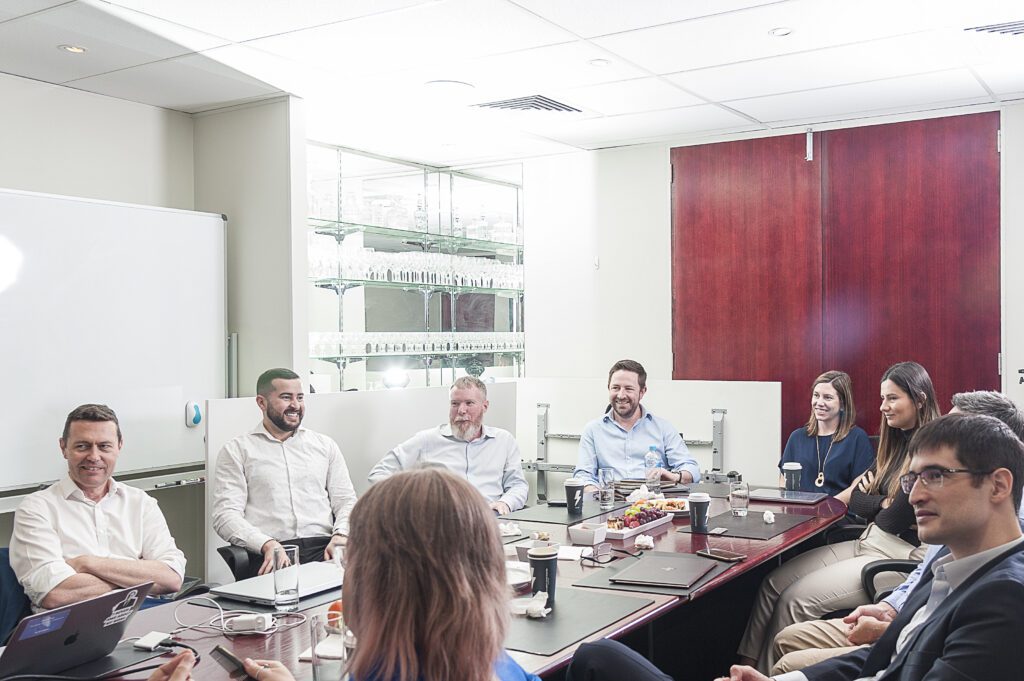Arche Energy provides a complete energy consulting service spanning from concept design through to project implementation and commercialisation in Australia.
We cover the entire energy industry including upstream, generation, transmission and distribution and all technologies (such as renewables, conventional and novel technologies).
We are one the leading energy consultancy firms in Australia.

Arche’s services include:
The aim of energy consulting is to optimise energy systems, improve efficiency and achieve sustainable energy solutions. View our energy transition consulting page.
Energy consulting encompasses a wide range of services, including:
Arche’s consultants evaluate energy consumption patterns, systems, and processes to identify areas of improvement and energy-saving opportunities.
Arche’s consultants assist clients in incorporating renewable energy sources, such as solar, wind, geothermal, or biomass into their energy systems.
Arche’s consultants develop strategies and plans to optimise energy management, reduce energy waste and enhance overall energy efficiency.
Arche’s consultants help clients estimate, measure and reduce their carbon footprint through sustainability assessments.
Arche’s consultants assist clients in navigating energy-related regulations, policies and compliance requirements.
Consultants provide expertise in the design and implementation of energy and major infrastructure projects.
Engineering project management strongly involves the application of project management principles and techniques.
It uses planning, organising, coordinating, and controlling the resources, activities and stakeholders involved in the execution of engineering projects to achieve their objectives.
Engineering project management encompasses a range of tasks and responsibilities, including:
Defining project objectives, scope, deliverables, and timelines. Creating a detailed project plan that outlines tasks, milestones, and resource requirements.
Allocating and managing resources effectively.
Identifying and assessing project risks and developing strategies to mitigate or manage them.
Ensuring that engineering projects meet the required quality standards and specifications.
Establishing clear communication channels and managing relationships with project stakeholders.
Tracking project progress against the plan, monitoring key performance indicators, and taking corrective actions as needed to keep the project on track.
Maintaining accurate project documentation, including project plans, technical specifications, change orders and progress reports.

Managing contracts and agreements related to the project.
Estimating project costs, preparing budgets and monitoring project expenditures.
Generating financial reports and statements to provide accurate and timely information on project financial performance
Identifying and assessing financial risks associated with the project and developing strategies to mitigate them.
Managing relationships with suppliers and subcontractors, including contract negotiation, performance monitoring and ensuring timely payment.
Managing and resolving claims and disputes related to commercial matters.
Identifying opportunities to enhance project value while managing costs.
A commercial risk review is an evaluation of the potential risks and uncertainties associated with a project or business venture.
It focuses on identifying, assessing, and mitigating risks that may impact the financial performance, contractual obligations, or commercial viability of the project.
During a commercial risk review, various factors are examined, including :
By effectively managing the technical aspects of clean energy projects, engineering managers play a critical role in ensuring the successful implementation and operation of renewable energy systems.
Their expertise in engineering principles, project management, and stakeholder coordination helps drive the transition towards a sustainable future.